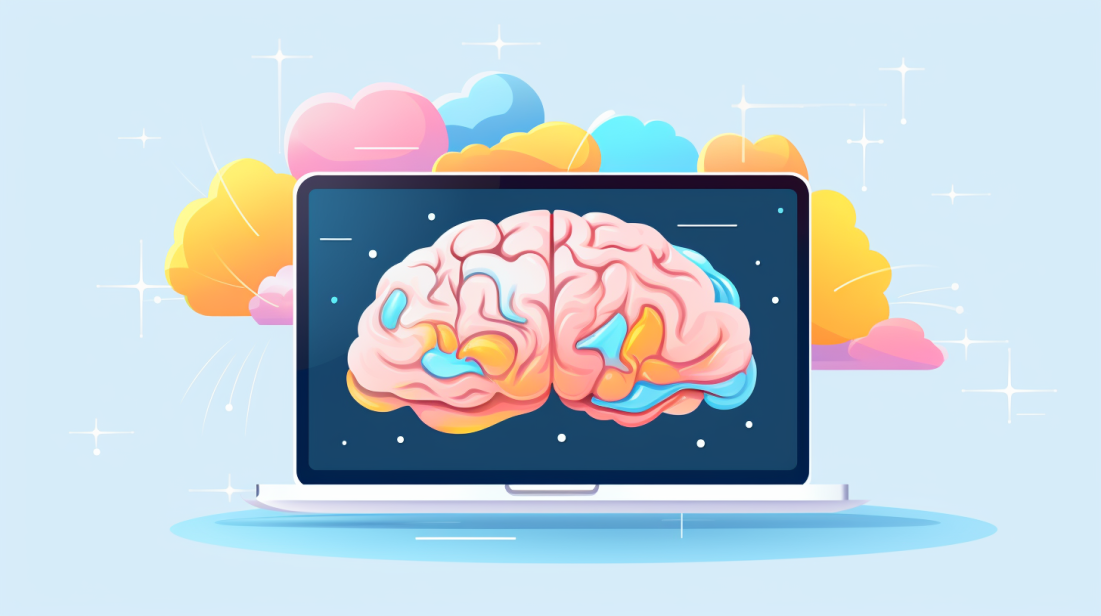The Impact of Remote Work on Mental Health

Have you found a subtle shift in your mood since transitioning to remote work? You’re certainly not alone. Many of us have discovered how the long hours cooped up at home can play tricks on our mental well-being.
In this article, we will delve into the unchartered territory of remote work and its impact on mental health—leaning heavily on legitimate studies like that carried out by the Integrated Benefits Institute (IBI) which intriguingly links hybrid and fully-remote working to amplified anxiety symptoms.
Are you prepared for some thought-provoking revelations?.
Key Takeaways
- Remote work can make us feel both good and bad. Feeling down or depression happens more often.
- Being tired too much means we may be burnt out from remote work. This shows as being tired all the time, slow work, or no urge to do tasks.
- Working alone at home can be hard. Many miss their friends at work a lot and feel left out.
- Making clear rules for when to end your day helps a lot. Short breaks during work hours also help keep our mind sharp!
The Impact of Remote Work on Mental Health
Transitioning to remote work has significantly impacted our mental health. Many of us are grappling with higher rates of depression and anxiety given this sudden lifestyle change. Our work-life boundaries have blurred, sometimes leading to a burnout crisis that makes it harder for us to switch off from work mode.
This shift in working conditions necessitates new ways of addressing our mental wellbeing while still remaining productive.
Higher Rates of Depression

Working from home can make people feel sad more often. This is called depression. A study showed that people who work at home all the time or some of the time have a higher chance to feel this sadness.
This was compared to those who go into an office for work. It’s also found that more bosses saw their workers’ mental health become worse in 2022 when they worked from home. Many even had to take drugs prescribed by doctors because of their mental health problems.
So, working away from an office can lead to more feelings of sadness or depression for many individuals.
Burnout Crisis
The burnout crisis is a big problem for people who work from home. Long hours and the need to do more than others can make remote workers tired. Many tech employees in the US feel this way, according to research.
This is when work starts to be too much all of the time. It feels like you never get a break from your job. Workers also deal with slow internet and not having enough room at home as their office space, which adds to stress levels.
Each day seems longer because these problems don’t go away after you finish working for the day.
Burnout is not just about feeling tired or stressed out every now and then – it’s worse than that! You keep feeling run down, even when you’re not at work anymore. Keep an eye on signs like always being worn out or losing interest in what you used to enjoy doing before starting remote work.
Work-Life Boundaries
Working at home jumbles up work life and personal time. This is called having bad “work-life boundaries”. Too much work makes it hard for me to spend time with my family. Kids running around, pets needing care, slow WiFi; all these things make it tough to do my job well.
Clear work and relax times help fight against this problem. We can progress more if bosses allow flexible Time schedules for us remote workers! They could also support by offering benefits like child or pet care services.
Benefits of Remote Work for Mental Health

The flexibility in our schedules from remote work allows us to weave self-care into daily routines. We are surrounded by the comfort of our home environment, reducing typical workplace stressors.
Routines can be tailored towards improved mental health with advantages such as choosing when and where we prefer to work, control over solitude or social interaction, and even dressing casual for comfort.
Flexibility
Working from home lets you pick your work hours. This is what we call flexibility. You can start early or end late, it’s up to you! Flexibility also means you can handle personal stuff during normal work hours if needed.
You do not have to be at a certain place every day for 8+ hours straight. In this way, remote work places control of your schedule in your hands and eases stress levels too! It’s great for those with mental health issues that need a comfy and supportive workplace.
Plus, more time opens up for self-care activities and being with family when there’s no commute time getting in the way!
Comfort of Home Environment
Working from home can be easy on the mind. The reason is simple. There is less stress when you work in your own space. There is no need to deal with a loud office or a hard chair all day long.
You can pick the best place for your work and set it up how you like.
The comforts at home also help cut down mental pressure. Sitting on your favorite couch, sipping coffee as often as you want, can lighten your mood. A happy mood helps get better results at work too.
Avoidance of Workplace Stressors
Working from home cuts out some stress. You don’t have to face a busy office or mean boss in your own home. Plus, you get to skip the daily drive that can really tire you out. But that doesn’t mean all stress goes away when you work at home.
Many people feel alone and miss talking with their work buddies. Some also find it hard to stop working when they never leave the “office”. Even so, without facing rush hour traffic or a loud co-worker eating chips beside them, many workers say they prefer remote work.
Challenges of Remote Work for Mental Health
Working remotely can present certain challenges to mental health, such as feelings of isolation and difficulty managing time that could blur the boundaries between work and personal life.
Discover more about these challenges in our detailed discussion below!
Isolation

Isolation can hit hard when working from home. The fact is, 73 percent of bosses said that their staff felt alone. Working all day without seeing another person can make you feel cut off from the world.
We are social beings and need to interact with others. You may miss small talks during coffee breaks or a lunch chat about last night’s game. Worse yet, being isolated for too long can hurt our mental health in a big way! With over 30 percent of remote workers feeling left out from their team, it clear – we need to tackle this isolation crisis before it gets worse.
Difficulty Managing Time
Working from home has some clear benefits. But it can make managing time tough for some people. With our work area just in the next room, we often lose track of time. We may find ourselves working late at night or early in the morning.
To solve this, plan out your day ahead of time. Set a schedule and stick to it as if you were working in an office. It’s okay to adjust when needed, but keep careful control over your hours.
This will help you get work done without letting it take up all your free time at home.
Blurred Boundaries Between Work and Personal Life
In today’s world, the line between work and personal life can blur. This is a big problem with remote work. Working from home means your job can creep into your free time. Your living room may have turned into an office space.
You might start checking emails during family dinner or finish up tasks after bedtime stories for kids are over. This lack of clear boundaries impacts mental health negatively, causing stress and burnout.
It makes it hard to unwind and feel relaxed even in our own homes.
Signs of Remote Work Burnout
Constant fatigue begins to set in, productivity reduces noticeably, and there’s a lack of motivation creeping into my daily tasks.
Constant Fatigue

Feeling tired all the time is common in remote work. Long hours and daily tasks wear you down. You feel worn out, even after you rest well. The screen light also makes your eyes hurt and causes sleep problems.
This goes on day after day without a break. Constant fatigue then sets in and it tells us about burnout from working at home all the time. It happens more to tech workers since they work long hours every day compared with their friends who go to offices for work.
Reduced Productivity
Working from home can slow you down. You may not get as much done. This can happen when you feel tired all the time. Or, if you have less energy for your work tasks.
Sometimes, distractions are too many. Kids running around or chores needing attention make it hard to focus on work. A disorganized workspace can also cut into your work time. These things might cause reduced productivity for remote workers.
Lack of Motivation
Working from home can cause a slip in drive sometimes. No co-workers around to boost up energy or chat with during breaks leads to this. As per the facts, the fallout of motivation can harm both output and joy in work for employees.
It’s key not just for them, but also their bosses and team members.
Strategies for Managing Mental Health When Working Remotely
It’s important to set clear work-life boundaries, ensuring you take regular breaks and time off from the screen. Make use of available mental health resources and lean on your support network when feeling overwhelmed or anxious.
Establishing Clear Work-Life Boundaries
It’s important to make work-life rules when working from home. One rule is to end the workday at a set time, just like in an office job. Avoid checking work emails or doing tasks after hours.
Mixing work and personal time can cause stress and burnout. I also keep my workspace separate from other areas in my house. This tells me that this is where I focus on work stuff only, not family or fun stuff.
Making these clear lines helps lower stress levels and avoids confusion for both you and your co-workers about when you are working.
Regular Breaks and Time off

Taking breaks is a must. If you work non-stop, your mind and body both get tired. You might feel like you can’t think straight or do good work. That’s why it’s important to take regular breaks when working from home.
Having time off is also very important. Too much screen time can tire out your eyes and mess up your sleep. You need days where you don’t stare at a screen at all. Time off also helps if you’re doing extra hours every day, as this can trouble your mental health over time.
Mental Health Resources and Support
Help is always there for you. Online websites provide useful tips to help manage stress and handle work problems. Using these platforms, you can also meet mental health experts. A good talk with an expert helps a lot! Some companies offer free counseling programs for workers too.
They ensure the talk stays private, no need to worry about your secrets leaking out! Also, they have sessions for physical and mental care tied together. This makes taking care of yourself really easy when working from home!
Tips for Staying Productive While Working Remotely
Mastering remote work productivity can be a challenge, but with the right strategies like effective time management, minimizing distractions and setting realistic expectations, you can excel in your tasks.
Dive deeper into these tried-and-true productivity tips for remote work that could transform your daily routine!
Time Management
Time management can be hard when you work from home. Many things happen at once. You may have to answer emails, take care of kids, or clean the house all while working. This all upsets your day’s plans and drains a lot of time which creates stress.
To manage time better, use lists and set deadlines for each task during your workday. Be firm with these boundaries so that your hours don’t blend into never-ending workdays! Following these simple steps can help avoid feeling overwhelmed.
Avoiding Distractions
Distractions can hurt your work. They stop you from getting things done. It’s like playing a game of tag with time, but you never win! One way to beat distractions is by making a space just for work at home.
Your brain will learn that this space means business.
A busy mind makes mistakes and feels tired fast. Less noise equals less mess in our minds! A daily routine is powerful against confusion too. Following the same steps every day helps us stay focused on what matters most – doing our best work possible.
Setting Realistic Expectations

I find it is key to have clear goals when working from home. It’s good to know what I can do in a day’s time. Setting targets that are too big may end up making me feel sad or stressed out.
So, it is better to have smaller tasks that I can finish without any hurry or worry. This way, my mind stays calm and my work doesn’t seem too hard anymore!
Conclusion
Remote work changes how we think about jobs and health. It has both good and bad effects on our minds. We can help each other to find balance in remote work life. So, never forget – your mental well-being is important too!
Is Having a Stable Internet Connection Important for Remote Workers’ Mental Health?
Having a stable internet connection is crucial for remote workers’ mental health. Reliable internet is one of the remote work internet essentials. Slow or unreliable connections can lead to frustration, stress, and decreased productivity. A stable internet connection allows remote workers to efficiently communicate, collaborate, and access important work-related resources, ensuring their mental wellbeing and overall job satisfaction.
FAQs
1. How does remote work impact our mental health?
Remote work can impact mental health in many ways. It may lead to social isolation, stress due to working long hours, and emotional exhaustion or Zoom fatigue from too much videoconferencing.
2. Does working from home affect work-life balance?
Yes! Remote or Hybrid work can affect the balance between one’s job and personal life. Time saved from commuting could be used for rest and family time but challenges like difficulty disconnecting from work persist.
3. What are some challenges of remote working?
Some major problems faced while teleworking include dealing with interruptions at home, having a good office space at home, and dealing with loneliness.
4. Can prolonged sitting during remote work hurt our bodies?
The habit of sitting for long periods when doing flexible scheduling tasks remotely has been linked with bad physical health outcomes.
5. Are there any corporate steps towards reducing these side effects among employees?
Many companies such as Microsoft and GitLab promote benefits like potential PTO (Paid Time Off), Work-arrangement preferences for their employees’ well-being . The workplace culture aims to ensure psychological safety by providing programs to help manage stress proactively.
6. Is facing prejudice a problem on online platforms like Slack or Microsoft Teams?
Sometimes people face microaggressions based on their gender identity during asynchronous communication in an online environment which is not healthy and brings out the need for a non-judgmental culture.





